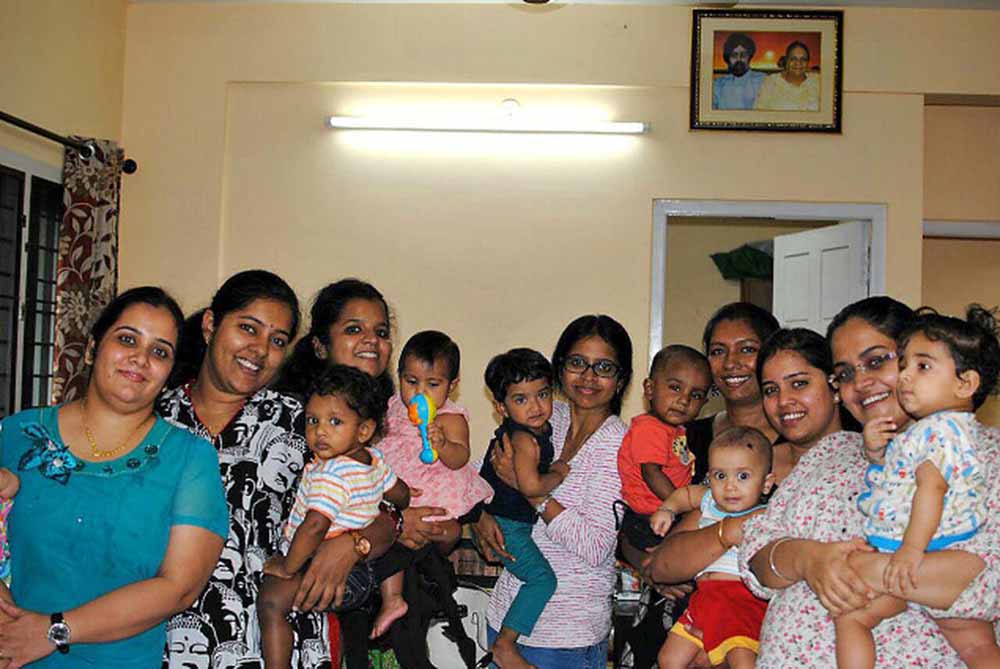Every new mother enters an unknown and unexplored phase in her life, where she is constantly learning, unlearning, evolving, experimenting, making mistakes and growing in her new role. It may feel like her first day at school or at work, where she has to figure things out on her own, while also being responsible for another tiny human being!

Today especially, there is an immense load of information available for new mothers to figure things out at the pre-birth stage. While a lot of physical preparation, support and guidance goes into pre-natal care, there’s isn’t as much assistance for physical struggles such as breastfeeding or dealing with a baby who is constantly crying. It is also quite difficult for new mothers to physically and emotionally bounce back and figure things out at home, both with the baby and on the personal front. Many new mothers struggle with breastfeeding and the concerns around it. These include latching issues, low or no milk supply and nipple soreness. You are not alone, new mothers! And you do not have to deal with breastfeeding problems all by yourself.

Dr Rupali Jain, neonatologist, pediatrician and lactation consultant explains that when it comes to feeding their infants, mothers are aware that breast milk offers numerous benefits. However, nursing isn’t always simple and many new moms struggle with latching, milk production, and other problems, which can cause them to get frustrated or give up completely. Breastfeeding is a great source of nutrition for the infant and is a good bonding experience for both mother and child. Imagine how devastating it can be for new mothers who are experiencing difficulties with nursing, particularly if they believe they have nowhere to go for advice and support.

The bond between mother and baby begins at conception and continues throughout life. As soon as a mother knows she is pregnant, a plethora of thoughts, expectations, and feelings start kicking in within her. These emotions develop with time, as the baby’s movements also kick in, followed by labour and childbirth. The first skin-to-skin contact, caring for the baby constantly, and breastfeeding, all cumulatively enhance mother and child bonding. Dr Rupali stresses that while breastfeeding is an important part of bonding, it is definitely not the sole way. This point has to be explicitly clarified to the mother, with the help of peer support groups in cases where she feels lost, or in the absence of an adequate support system. Low milk supply is a term used very loosely, as a mother’s perceptions are determined by high expectations. Seek guidance from a certified lactation consultant before drawing any conclusion.

Latchment
Society expects breastfeeding to come naturally to every woman who has delivered a baby, with each mother knowing how to breastfeed instinctively. In reality, it is a skill to be learnt by both mother and the baby, and proper guidance by a certified lactation consultant can ease the process. This awareness can enable latchment and prevent early transition to bottle feeding.
There is a gap in the system - women give birth, and are asked to go home and deal with the baby, with little to no information of what comes next. A 2022 study surveyed 1,200 nursing moms across India and found that 83 per cent had major breastfeeding challenges. Dr Rupali explains that mothers face problems right from holding the baby properly, breastfeeding positions proper latchment, and newborn care. These are made worse by suggestions and scientifically unsupported opinions provided by people around her. This leads to a state of confusion and an inability to decide what is in the best interest of the baby.
To help mothers, regular antenatal and postnatal classes can be taken at the nursing home level for both the mother and other family members to educate them, debunk myths, and guide them about breastfeeding and baby care. This will empower the mother to make the best decision for her baby.

Engorgement
Engorgement occurs when breasts become overfull with milk, causing pain and swelling. It is common during the initial days post-delivery when breast milk volume increases and can cause difficulty in latching the baby to the breast. Regular, timely breastfeeding can avoid engorgement. If the breasts are still engorged, the mother can hand-express the milk or pump using a breast-pump to relieve them.
Common concerns faced by new mothers include - when to start breastfeeding, frequency, duration, adequacy of feeding, nipple issues like small/flat/retracted nipple, painful feeding, breast engorgement, mastitis, and breast abscess. These issues can be overwhelming to the mother and can negatively impact breastfeeding practice. Mothers should be aware that there are obstetricians, paediatricians, and more specifically lactation consultants to help her out. She is not expected to know everything and she is not alone in this beautiful journey!
Image source: Tiny beans, Google